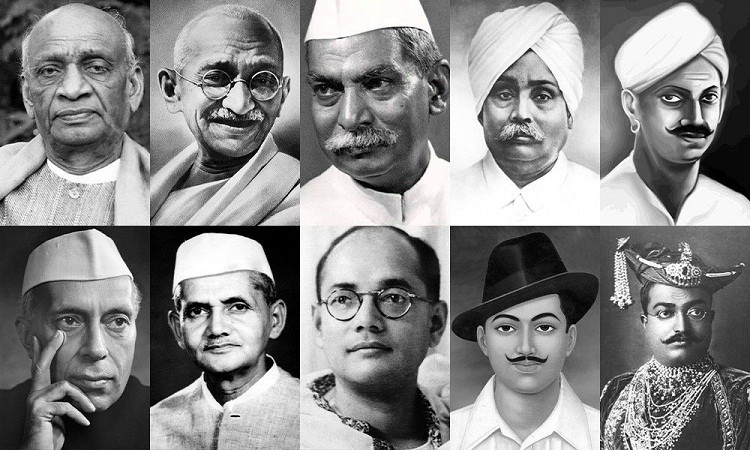
The history of India's struggle for independence is replete with stories of bravery, sacrifice, and determination of its freedom fighters. These individuals played a pivotal role in the long and arduous journey towards liberating India from British colonial rule. Their unwavering spirit and dedication galvanized millions of Indians to join the fight for independence, leading to one of the most significant chapters in the nation's history. In this article, we explore the role of freedom fighters in India and highlight the contributions of some of the most influential figures who played key roles in achieving India's freedom.
The Role of Freedom Fighters in India: The fight for India's independence was marked by a diverse range of strategies, ideologies, and movements. From non-violent civil disobedience to armed rebellion, Indian freedom fighters employed various means to challenge British rule and demand self-governance. Their efforts were not confined to any specific region; they spanned the length and breadth of the Indian subcontinent, uniting people from different backgrounds, languages, and cultures under a common goal.
One of the most significant contributions of freedom fighters was their ability to instill a sense of national identity and unity among the masses. They ignited the spirit of nationalism and encouraged people to rise above their differences and work together for the greater cause. Freedom fighters emerged from all walks of life – from students, lawyers, and intellectuals to farmers, workers, and artisans, demonstrating that the struggle for freedom was a collective effort.
Top Indian Freedom Fighters and Their Contributions: Mahatma Gandhi (1869-1948): Fondly known as the Father of the Nation, Mahatma Gandhi was the epitome of non-violent resistance or Satyagraha. Through his principles of truth, non-violence, and civil disobedience, Gandhi inspired a massive civil rights movement across the country. His leadership in the Salt March, Quit India Movement, and numerous other campaigns pushed India closer to independence. His steadfast commitment to Ahimsa (non-violence) influenced not only India but also inspired other civil rights movements worldwide.
Jawaharlal Nehru (1889-1964): A close associate of Mahatma Gandhi, Jawaharlal Nehru was an integral part of the Indian National Congress. He played a crucial role in negotiating with the British during the freedom struggle. After India gained independence, Nehru became the first Prime Minister and steered the nation towards building a strong foundation for democracy and development.
Bhagat Singh (1907-1931): A symbol of youth rebellion and sacrifice, Bhagat Singh was a fearless revolutionary who believed in armed resistance against British oppression. He was involved in various acts of defiance and eventually sacrificed his life at the age of 23 for the cause of India's freedom. His courageous actions inspired generations of Indians to join the struggle.
Subhash Chandra Bose (1897-1945): Known for his fiery nationalism and determination, Subhash Chandra Bose was a charismatic leader who led the Indian National Army (INA) during World War II. Bose sought military support from Axis powers to free India from British rule. His famous slogan, "Give me blood, and I shall give you freedom," resonated with the masses and kindled a sense of patriotism.
Rani Lakshmibai (1828-1858): Also known as the Rani of Jhansi, she was a symbol of resistance against British colonial rule in the Indian Rebellion of 1857. Leading her troops with valor, she fought fiercely to defend her kingdom and earned admiration for her bravery and indomitable spirit.
The freedom fighters of India were the torchbearers of the nation's struggle for independence, and their indelible contributions paved the way for a free and sovereign India. Their relentless efforts, self-sacrifice, and commitment to the cause continue to inspire the generations that follow. India's freedom struggle stands as a testament to the power of unity and collective action in the face of oppression.
As the nation celebrates its independence, it is essential to remember and honor the legacy of these valiant souls who fought for the dream of a free India. Their vision and sacrifices serve as a reminder of the responsibilities that come with freedom, urging us to uphold the values of democracy, equality, and justice for which they fought so passionately. The spirit of these freedom fighters remains alive in the heart of every Indian, guiding the nation towards progress and prosperity.